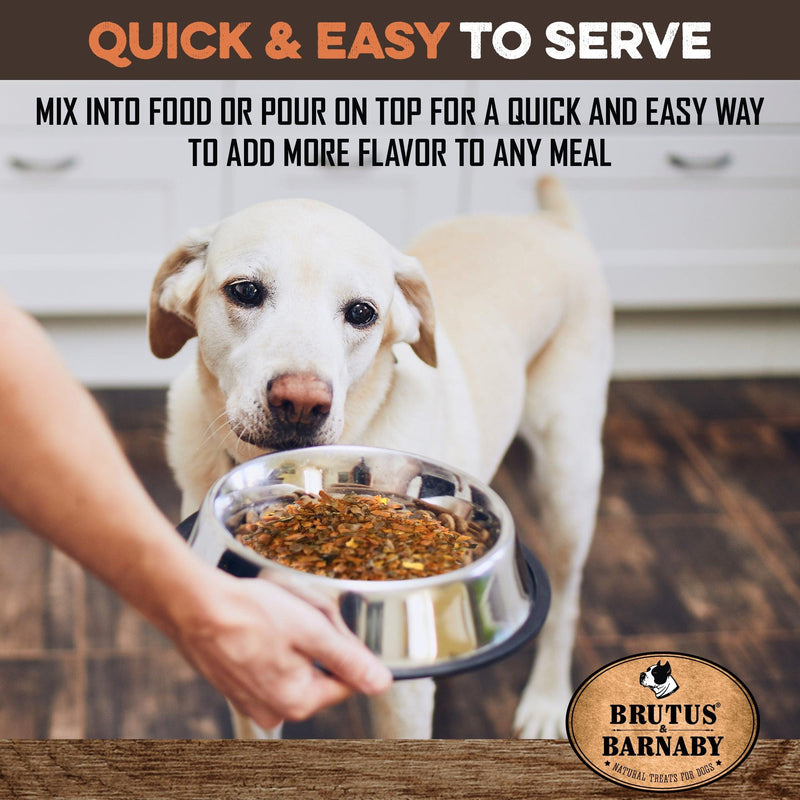If your dog won’t eat kibble but eats everything else, it could be due to dental issues, taste preferences, or underlying health problems. It’s essential to monitor your dog’s behavior and consult with a veterinarian to rule out any potential health issues and determine the best course of action.
In some cases, a simple change in diet or an adjustment in feeding routine may encourage your dog to eat kibble. Understanding your dog’s unique needs and preferences is crucial in ensuring their overall health and well-being. By addressing any concerns promptly, you can help your furry friend maintain a healthy and balanced diet.
Remember that professional advice is always the best solution for your pet’s health. As a pet owner, it’s concerning and puzzling when your dog refuses to eat their kibble but eagerly consumes other foods. This behavior can be distressing and may indicate an underlying issue that needs attention. We’ll explore the potential reasons behind a dog’s reluctance to eat kibble and provide insights on how to address this challenge effectively. From dental problems to taste preferences, various factors can contribute to a dog’s selective eating habits. Understanding the possible causes and seeking professional guidance can help you ensure your dog’s nutritional needs are met. Let’s delve into this common issue and learn how to support your dog’s eating habits for optimal health and happiness.
Common Reasons Dogs Shun Kibble
Dog Won’t Eat Kibble But Eats Everything Else
Taste preferences and natural instincts: Some dogs have specific taste preferences and natural instincts that lead them to reject kibble, opting for other foods instead. Their wild ancestors were primarily carnivorous, and this can influence their food preferences.
Dental issues causing discomfort: Dogs with dental problems may find it painful to eat hard kibble. This can lead them to avoid it in favor of softer foods that are easier for them to consume.
Association with negative experiences: If a dog has had negative experiences, such as illness or stress, while eating kibble, they may develop an aversion to it. This can lead them to resist eating kibble, even if they eat other foods without issue.
Effects of changes in environment or routine: Changes in a dog’s environment or routine can also impact their eating habits. Stress or anxiety caused by such changes can lead a dog to reject their regular kibble.
Assessing Your Dog’s Eating Habits
When evaluating your dog’s eating habits, it’s important to look beyond the food itself. Observe your dog’s behavior around mealtimes. Notice if there are patterns in when they refuse kibble but eat other foods. Pay attention to their energy levels and overall well-being. Consider if there are any recent changes in their environment or routine. Understand the significance of their non-eating related behavior. Keep in mind that these observations can provide valuable insights into your dog’s food preferences and potential health issues.
Creating Positive Mealtime Associations
Creating positive mealtime associations can help encourage your dog to eat its kibble. Using praise and rewards when your dog shows interest in its food can reinforce positive behaviors. Additionally, establishing consistent mealtime rituals can create a sense of routine and predictability for your dog. Encouraging play and exercise before meals can help stimulate your dog’s appetite and make it more receptive to eating its kibble. By implementing these strategies, you can help create a positive and enjoyable mealtime experience for your dog.

Credit: brutusandbarnaby.com
Nutritional Alternatives To Kibble
When a dog refuses to eat kibble but consumes other foods, it’s essential to consider nutritional alternatives to kibble to ensure their well-being. Incorporating wet food or homemade diets can provide a welcome change for picky eaters. Additionally, offering safe human foods that dogs can eat, such as cooked chicken, carrots, or green beans, can entice them to eat. Balancing nutrients when mixing different foods is crucial to maintain a well-rounded diet for your pet. Ensure that their meals contain the necessary protein, fats, carbohydrates, vitamins, and minerals. By introducing varied and balanced alternatives to kibble, you can address your dog’s reluctance to eat and promote their overall health.
Tricks To Entice Kibble Eating
When a dog won’t eat kibble but eats everything else, it can be frustrating for pet owners. However, there are several tricks and strategies that can help entice kibble eating.
Adding flavors: Experiment with broths, toppers, and mix-ins to make the kibble more appealing to your dog. Introducing new flavors can make the kibble more enticing.
Gradual reintroduction: If your dog has developed a disinterest in kibble, consider gradually reintroducing it alongside their preferred food. This can help them readjust to kibble over time.
Temperature and texture: Sometimes dogs are picky about the temperature and texture of their food. Warming the kibble or softening it with water can make it more palatable for your dog, encouraging them to eat it.
When To Consult A Vet
Dog Won’t Eat Kibble But Eats Everything Else
When your dog refuses to eat kibble but consumes other items, it may be a cause for concern. Consulting a vet is crucial when your dog consistently shows reduced interest in kibble. Look out for symptoms such as sudden weight loss, vomiting, diarrhea, or changes in behavior, as these could indicate underlying health issues.
Feeding your dog a balanced diet is essential for their overall well-being. Understanding the risks of an unbalanced diet and seeking professional advice on appetite stimulants can help address any eating issues and ensure your dog’s health is properly managed.
Behavioral Training For Fussy Eaters
Dog Won’t Eat Kibble But Eats Everything Else
Establishing a feeding schedule, using mealtime as training opportunities, and knowing when to remove uneaten food to prevent grazing can be effective strategies for finicky eaters. It’s important to establish a consistent feeding routine to help regulate your dog’s appetite and create a structured eating environment. Incorporating positive reinforcement during mealtime can help encourage your dog to eat their kibble. Additionally, removing uneaten food after a certain period can discourage grazing behavior and reinforce the idea that mealtime is for eating, not snacking. By implementing these techniques, you can help train your fussy eater to develop healthier eating habits and enjoy their kibble.
Monitoring Your Dog’s Health
When monitoring your dog’s health, it’s important to keep track of their weight and energy levels. Changes in weight and lack of energy can indicate potential health issues. Make note of any signs of improvement in eating habits, such as an increased interest in kibble or a more consistent appetite. Additionally, pay attention to any positive changes in your dog’s overall behavior and daily routine. If you notice any concerning patterns or persistent issues with eating, it may be necessary to adjust your approach based on feedback from your pet’s vet. Regular monitoring and quick action can help ensure your dog stays healthy and happy.
Frequently Asked Questions On Dog Won’t Eat Kibble But Eats Everything Else
Why Is My Dog Refusing To Eat Kibble?
It’s common for a dog to get bored with a repetitive diet. Try mixing in some wet food, or add some variety with healthy toppings like cooked meat or vegetables. Consult your vet to rule out any underlying health issues.
What Can I Do If My Dog Loses Interest In Kibble?
It’s important to address any potential concerns about your dog’s health. Consider altering feeding times, experimenting with different brands, or introducing new flavors and textures.
How Can I Encourage My Dog To Eat Kibble Again?
You can try incorporating kibble as part of training or playtime. Mix a small amount of kibble with something tasty, such as peanut butter or yogurt, to make it more appealing to your dog. Gradually reduce the amount of added flavor over time to regain their interest.
Conclusion
Understanding why your dog won’t eat kibble but eats everything else is crucial. By addressing potential health issues, experimenting with different types of food, and seeking guidance from a veterinarian, you can find a suitable solution. Remember to prioritize your dog’s health and well-being when making dietary decisions.



